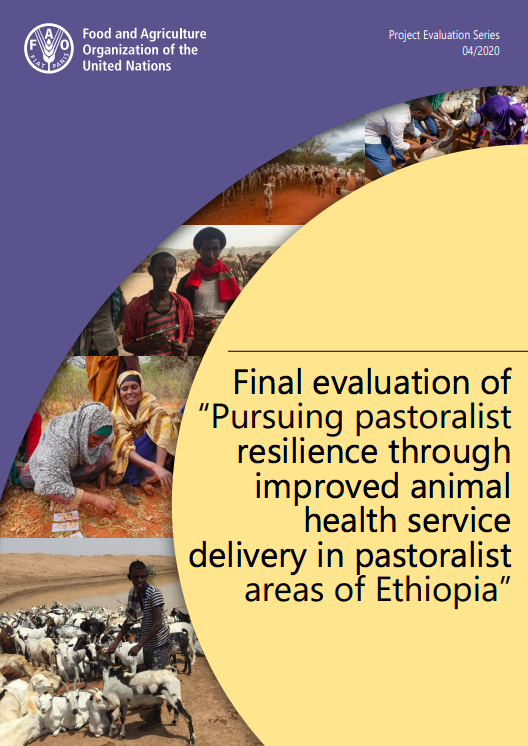Final evaluation of “Pursuing pastoralist resilience through improved animal health service delivery in pastoralist areas of Ethiopia”

ABSTRACT
Small ruminants are the main source of livelihood for the rural agropastoralists and are important assets in lowlands and highlands of Ethiopia. Transboundary animal diseases (TADs) are a significant cause of reduced production and productivity to the pastoral communities in Ethiopia. TADs like Peste des Petits Ruminants (PPR), Sheep and Goat Pox (SGP) and Contagious Caprine Pleuropneumonia (CCPP) have contributed to a high level of sheep and goat mortality, especially in lambs and kids. The “Pursuing pastoralist resilience through improved animal health service delivery” project implemented by FAO between 2014 and 2020, was designed to support the Government of Ethiopia in strengthening the surveillance system for most TADs. The project had a primary focus to implement a progressive control programme for Peste des Petits Ruminants (PPR).
The evaluation found that the project has advanced PPR control and eradication and that the country has the capability to continue this momentum for improved animal health and welfare services for the greater ambition to eradicate PPR across the country by 2027. However, ensuring the effectiveness and sustainability of future projects requires overcoming many difficulties. Challenges relating to government strategy, coordination, resources and more are assessed in this report.